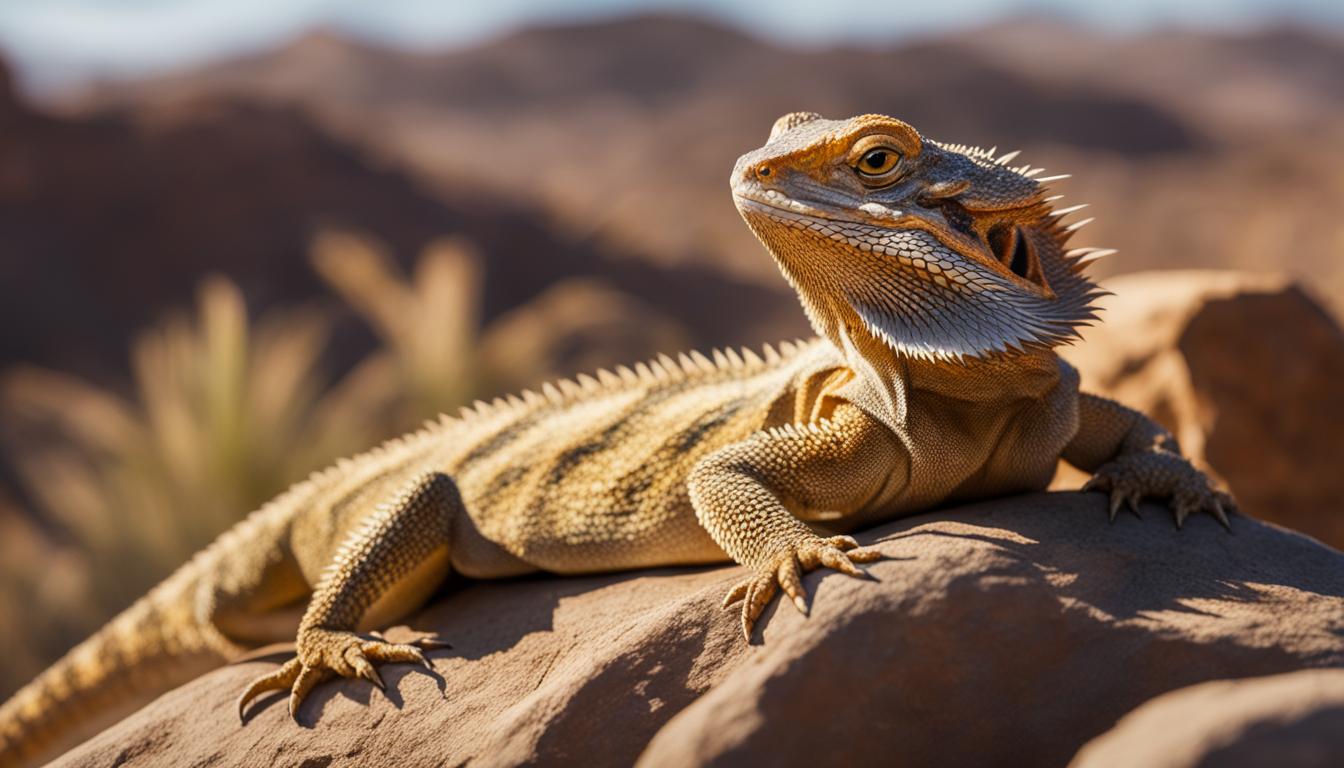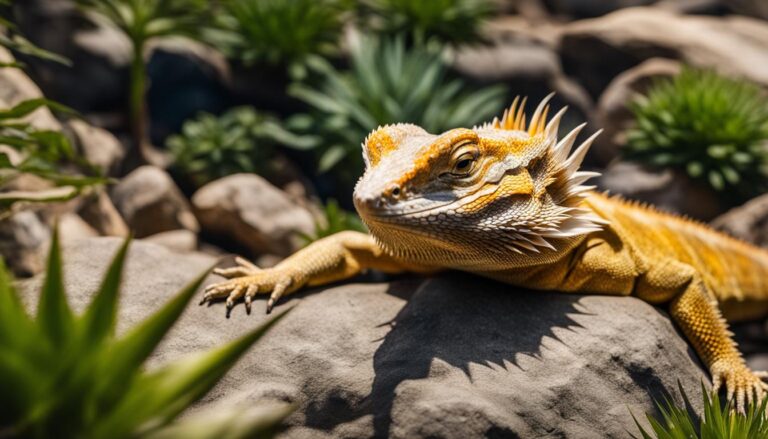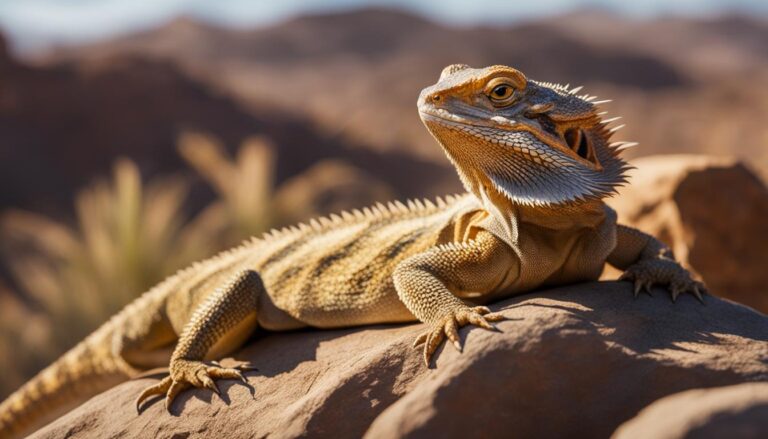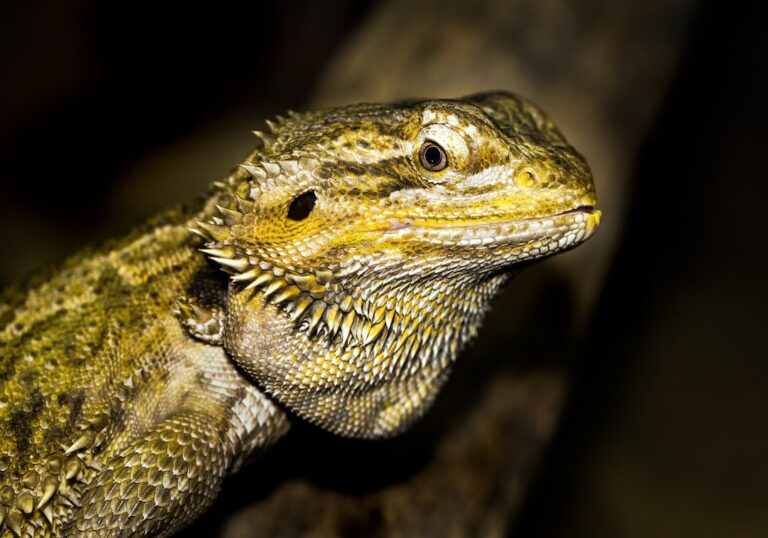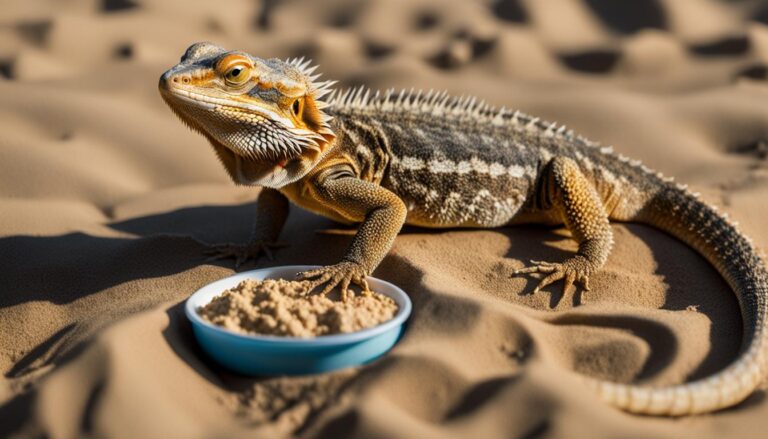Are Bearded Dragons Stupid?
Bearded dragons have become increasingly popular as pets in recent years. These reptiles are known for their unique appearance, docile nature, and relatively low maintenance requirements. However, it is important for pet owners to understand the intelligence level of bearded dragons in order to provide them with proper care and training. While they may not possess the same level of intelligence as dogs or cats, bearded dragons do exhibit cognitive abilities that can be nurtured and developed.
Table of Contents
What is the intelligence level of bearded dragons?
Intelligence can be defined as the ability to acquire and apply knowledge and skills. While traditionally associated with mammals, recent studies have shown that reptiles, including bearded dragons, also possess cognitive abilities. These abilities include problem-solving, learning, memory, and recognition.
Studies and observations on the cognitive abilities of bearded dragons have provided valuable insights into their intelligence level. For example, research has shown that bearded dragons are capable of learning and remembering specific tasks. They can be trained to perform tricks or respond to commands, indicating a level of cognitive flexibility.
Can bearded dragons learn new tricks or commands?
Bearded dragons are capable of learning new tricks or commands through positive reinforcement training. Some common tricks that they can learn include hand targeting, walking on a leash, and even playing fetch. Training sessions should be short and frequent to keep the dragon engaged and motivated.
When training a bearded dragon, it is important to use positive reinforcement techniques such as rewards or treats. This helps to reinforce desired behaviors and encourages the dragon to continue learning. It is also important to be patient and consistent during the training process, as it may take time for the dragon to understand and respond to commands.
How do bearded dragons compare to other reptiles in terms of intelligence?
When comparing the intelligence of bearded dragons to other popular reptile pets such as snakes or geckos, there are some notable differences. While all reptiles possess some level of cognitive abilities, bearded dragons are often considered to be more intelligent and trainable.
Bearded dragons have been observed to have a higher level of problem-solving abilities compared to other reptiles. They are able to navigate complex environments, find hiding spots, and even locate food sources. This suggests that they have a higher level of cognitive flexibility and adaptability.
Do bearded dragons have the ability to problem-solve?
Bearded dragons have demonstrated problem-solving behavior in various studies and observations. For example, they have been observed using their claws to open doors or lids in order to access food or escape from enclosures. They are also capable of navigating complex mazes and finding hidden objects.
The complexity of their problem-solving abilities is still a topic of debate among researchers. Some argue that their problem-solving abilities are more instinctual rather than based on higher-level cognitive processes. However, others believe that bearded dragons possess a certain level of cognitive flexibility and can adapt their behavior based on the specific situation.
Can bearded dragons recognize their owners or other animals?
There is evidence to suggest that bearded dragons are capable of recognizing their owners or other animals. They can form social bonds and display behaviors such as head bobbing or arm waving as a form of communication. This suggests that they have the ability to recognize familiar individuals and respond accordingly.
Socialization plays an important role in the cognitive development of bearded dragons. Regular interaction with their owners and exposure to different animals can help stimulate their cognitive abilities and promote social behavior. It is important for pet owners to provide opportunities for socialization in order to foster the cognitive development of their bearded dragons.
What factors can affect the intelligence of bearded dragons?
Several factors can affect the intelligence of bearded dragons. Environmental factors such as diet, habitat, and socialization play a crucial role in their cognitive development. A balanced diet that includes a variety of insects, vegetables, and fruits can provide the necessary nutrients for brain development.
The habitat of a bearded dragon should also be enriched with various stimuli such as climbing structures, hiding spots, and toys. This helps to provide mental stimulation and encourages the development of problem-solving abilities. Regular interaction with their owners and exposure to different animals can also contribute to their cognitive development.
Genetic factors can also influence the intelligence of bearded dragons. Selective breeding for certain traits, such as color or size, may inadvertently affect their cognitive abilities. It is important for breeders to prioritize the overall health and well-being of the dragons when selecting breeding pairs.
Are there any studies or research on the intelligence of bearded dragons?
There have been several studies and research conducted on the intelligence of bearded dragons. These studies have provided valuable insights into their cognitive abilities and behavior. For example, a study published in the journal Animal Cognition found that bearded dragons are capable of learning and remembering specific tasks.
Future directions for research in this area include further exploration of their problem-solving abilities, memory capabilities, and social behavior. Understanding the intelligence of bearded dragons can help improve their care and training, as well as contribute to our understanding of reptile cognition.
Can bearded dragons show signs of emotional intelligence?
Emotional intelligence refers to the ability to perceive, understand, and manage emotions. While traditionally associated with mammals, there is evidence to suggest that reptiles, including bearded dragons, can display emotional behavior.
For example, bearded dragons have been observed to exhibit signs of stress or anxiety in certain situations. They may display defensive behaviors such as puffing up their beard or hissing when they feel threatened. They can also show signs of contentment or relaxation when they are in a comfortable environment.
How can you improve the cognitive abilities of your bearded dragon?
There are several ways to improve the cognitive abilities of your bearded dragon. Providing a stimulating environment with various stimuli such as climbing structures, hiding spots, and toys can help promote mental stimulation and problem-solving abilities.
Regular interaction and training sessions with your bearded dragon can also help improve their cognitive abilities. Positive reinforcement training techniques can be used to teach them new tricks or commands. It is important to be patient and consistent during the training process, as it may take time for the dragon to understand and respond to commands.
What are some common misconceptions about the intelligence of bearded dragons?
There are several common misconceptions about the intelligence of bearded dragons that need to be debunked. One misconception is that reptiles, including bearded dragons, are not intelligent because they have small brains. However, brain size does not necessarily correlate with intelligence.
Another misconception is that reptiles are purely instinctual and do not possess cognitive abilities. While reptiles may rely on instinctual behaviors for survival, they have also been shown to exhibit problem-solving abilities and learning capabilities.
Understanding the cognitive abilities of bearded dragons is important for their proper care and training. By debunking these misconceptions, pet owners can provide a stimulating environment and engage in training sessions that promote the cognitive development of their bearded dragons.
In conclusion, while bearded dragons may not possess the same level of intelligence as dogs or cats, they do exhibit cognitive abilities that can be nurtured and developed. Understanding their intelligence level is important for providing them with proper care and training.
Bearded dragons have been shown to possess problem-solving abilities, learning capabilities, and even emotional behavior. They can learn new tricks or commands through positive reinforcement training and can recognize their owners or other animals.
Factors such as diet, habitat, socialization, and genetics can affect the intelligence of bearded dragons. Providing a stimulating environment, regular interaction, and training sessions can help improve their cognitive abilities.
It is important to debunk common misconceptions about the intelligence of bearded dragons in order to provide them with the care and training they need. By understanding their cognitive abilities, pet owners can ensure the overall well-being and happiness of their bearded dragons.
If you’re interested in reptile behavior, you might also want to check out this article on why do iguanas bob their heads. It’s a fascinating look into the unique movements and gestures of these intriguing creatures. Click here to learn more about this curious behavior and gain a deeper understanding of iguana communication.

